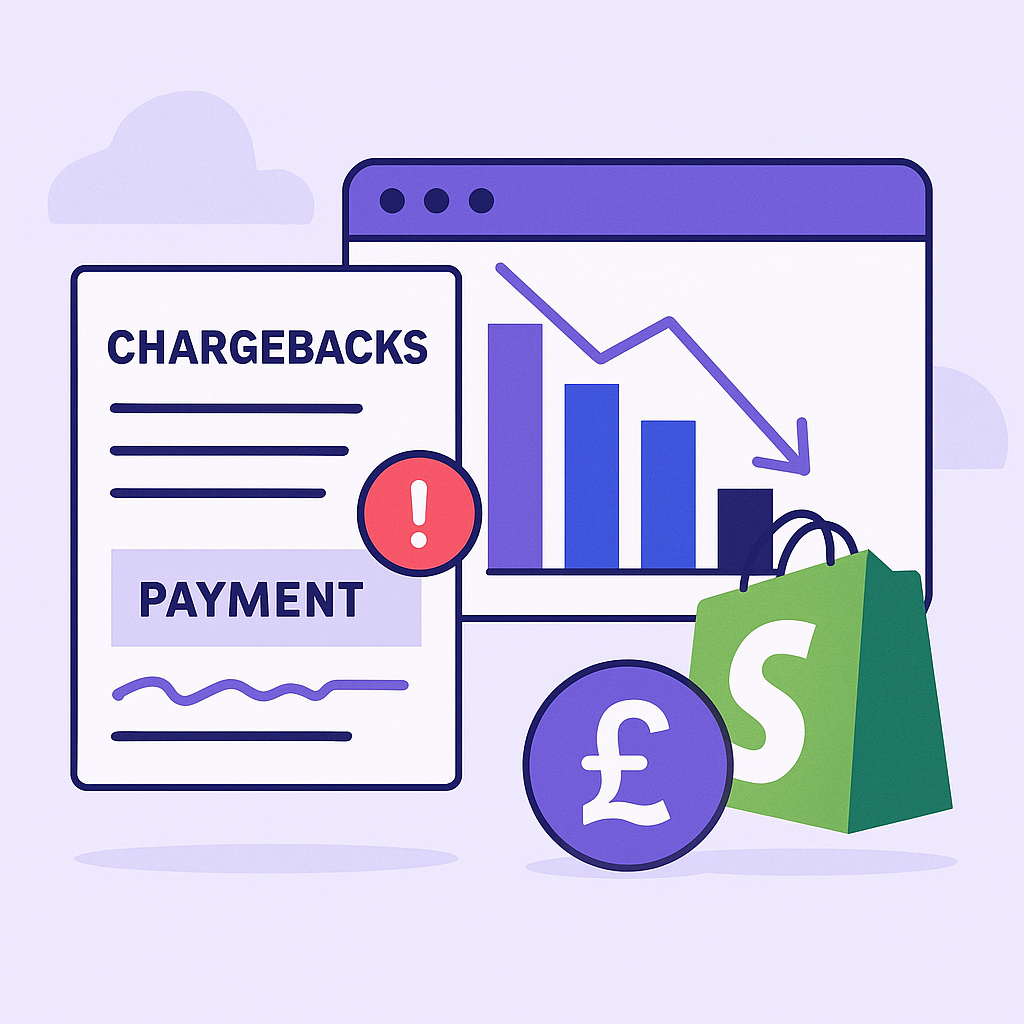Chargebacks are one of the biggest hidden threats to accurate cash flow forecasting. For Shopify CFOs, every disputed payment introduces friction, uncertainty, and cost. This guide explains the financial impact of chargebacks—and how switching to zero-chargeback methods like Pay by Bank helps stabilize revenue and improve planning.
Why Chargebacks Are a Problem for Forecasting
A chargeback is when a customer disputes a transaction with their bank or card provider. If approved, the funds are pulled back from the merchant’s account—sometimes weeks after the original transaction.
For Shopify CFOs, this means:
This erodes the reliability of your revenue models—especially when forecasting runway, campaign ROI, or planned investments.
For Shopify CFOs, this means:
- Unexpected revenue reversals
- Delayed or canceled payouts
- Loss of confidence in forecast accuracy
- Manual time wasted resolving disputes
This erodes the reliability of your revenue models—especially when forecasting runway, campaign ROI, or planned investments.
The Hidden Costs of Chargebacks
In high-volume Shopify stores, even a 1% chargeback rate can represent thousands in lost income and hours of wasted internal time.
Why Card-Based Payments Are Vulnerable
Credit and debit cards were not built for ecommerce. They're highly susceptible to:
Processors like Stripe, PayPal, and Shopify Payments have dispute mechanisms—but outcomes are unpredictable, and CFOs carry the financial burden either way.
- Fraudulent chargebacks ("friendly fraud")
- Refund abuse
- Disputes over unclear shipping, recurring billing, or charge timing
Processors like Stripe, PayPal, and Shopify Payments have dispute mechanisms—but outcomes are unpredictable, and CFOs carry the financial burden either way.
The Zero-Chargeback Alternative: Pay by Bank
Unlike card payments, Pay by Bank is a push-based payment method. The customer authorizes the payment directly from their bank account, using secure open banking protocols.
Once authorized, the funds are transferred immediately—and can’t be reversed via chargeback.
Benefits for forecasting:
With Wall ID, Shopify CFOs gain daily forecast stability and eliminate one of the biggest threats to cash confidence.
Once authorized, the funds are transferred immediately—and can’t be reversed via chargeback.
Benefits for forecasting:
- No disputed transactions = consistent revenue
- No holdbacks or settlement delays
- Full visibility into cleared cash inflows
With Wall ID, Shopify CFOs gain daily forecast stability and eliminate one of the biggest threats to cash confidence.
Why Wall ID Is the Smarter CFO Choice
Wall ID combines:
It’s the ideal solution for CFOs who want to move away from card-based volatility and toward true cash flow control.
- Instant settlement via Pay by Bank
- Zero chargeback liability
- Real-time reconciliation tools
- FCA-regulated security and compliance
It’s the ideal solution for CFOs who want to move away from card-based volatility and toward true cash flow control.
Speakable
Chargebacks disrupt Shopify cash flow forecasts by reversing revenue without warning. Pay by Bank removes that risk entirely, helping CFOs plan with consistency, accuracy, and control."






